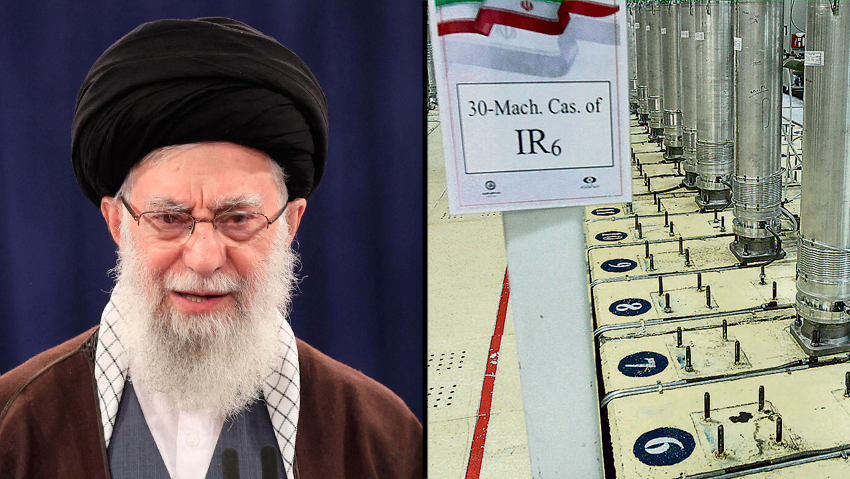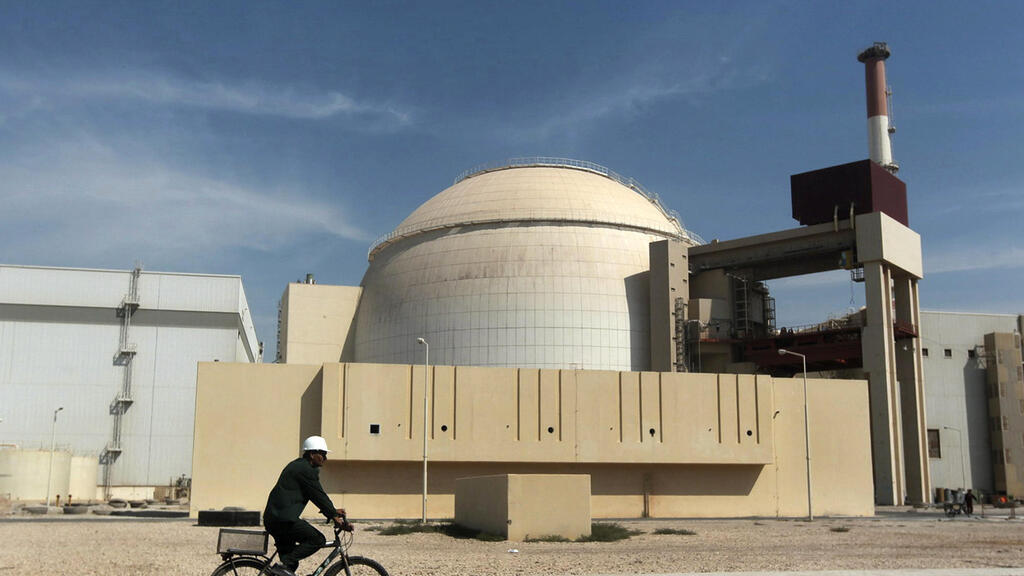Getting your Trinity Audio player ready...
The United States is willing to allow Iran to operate a civilian nuclear program using nuclear reactors for electricity generation—but without enriching its own uranium, U.S. Secretary of State Marco Rubio said ahead of a third round of indirect talks between Washington and Tehran this weekend.
In an interview on Wednesday with journalist Bari Weiss, Rubio stated that, like many other countries, Iran could import low-enriched uranium for civilian use rather than enrich it domestically—a process that could still enable weapons development.
“If Iran wants a civil nuclear program, they can have one just like many other countries in the world have one, and that is they import enriched material," Rubio said in an interview with The Free Press podcast.
"There's a pathway to a civil, peaceful nuclear program if they want one, but if they insist on enriching, then they will be the only country in the world that doesn't have a weapons program but is 'enriching' — that’s problematic," he added.
Get the Ynetnews app on your smartphone: Google Play: https://bit.ly/4eJ37pE | Apple App Store: https://bit.ly/3ZL7iNv
The proposal directly challenges Iran’s longstanding claim that its nuclear program is purely civilian. Evidence from past intelligence, including the once-active AMAD Project halted in 2003, has shown that Iran previously pursued nuclear weapons capabilities.
Senior Trump administration officials have recently signaled willingness to reach a compromise on Iran’s nuclear program, stepping back from Israel’s demand for a complete dismantling. Negotiator Steve Witkoff said last week that Iran might be allowed to enrich uranium up to 3.67% for civilian purposes, though he later clarified that such enrichment should be handled via imports, not domestic production.
3 View gallery


US Secretary of State Marco Rubio revealed the plan
(Photo: Saul Loeb/Pool via Reuters)
Currently, Iran already imports enriched uranium for its Bushehr civilian reactor from Russia, which also reclaims spent fuel to prevent its use in weapons. Spent fuel can theoretically be processed to extract plutonium, another material usable in nuclear arms.
Under the 2015 nuclear deal, Iran agreed to limit enrichment to 3.67% until 2031. But since the U.S. withdrew from the agreement in 2018 under President Trump—encouraged by Israel—Iran has breached the deal's terms and is now enriching uranium up to 60%, near weapons-grade level. It reportedly possesses enough highly enriched uranium to produce at least six nuclear bombs.
Though Iran has signaled readiness to return to lower enrichment levels in a new agreement, it insists that its right to enrich uranium is non-negotiable. An Iranian official told Reuters on Wednesday, “Zero enrichment is unacceptable.”
Ali Shamkhani, senior adviser to Iran's Supreme Leader Ayatollah Ali Khamenei, also dismissed the so-called “Emirati model,” referring to the UAE’s policy of importing enriched uranium and not reprocessing spent fuel—steps taken to ensure its nuclear program remains purely civilian.
Richard Nephew, a former Obama-era nuclear negotiator, told The Wall Street Journal that Rubio’s proposal mirrors ideas discussed during the original talks. At the time, Iran claimed it needed domestic enrichment capabilities to supply nuclear fuel to neighboring countries and rejected reliance on imports. “People have talked about joint ventures and international nuclear fuel supply for decades,” said Nephew. “But the issue always circles back to Iran’s mistrust that it would receive the fuel when needed.”



